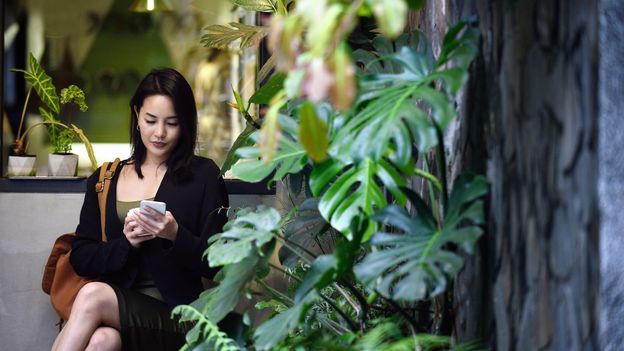I worked for two years for an international Japanese company that made an effort to project an “American-style” work culture. As it was my first office job anywhere, I didn’t have anything to compare it to and assumed it was normal. Now that I’ve worked a few years at several offices in the UK, I realise that Taiwanese work culture is very distinct to Europe’s and not what I’d call “normal” at all, but I’m really glad I experienced it before returning to the UK.
Based on my own limited experiences, I can make the following observations:
1) Taiwan: While your right for personal time off is respected, there’s still an expectation that you stay on top of office developments and respond to “important” messages. Typically, we’d take our work phone or laptop with us on holiday and designate a specific hour or so to check emails, etc. That or we’d just keep our work phone on-hand at all times outside of work.
1) UK: There’s no expectation that you should keep your work phone with you on hand during PTO. Your free time is expected to be yours so you don’t feel overburdened and return to the office recharged. The concept of taking your laptop with you on holiday and designating an hour to respond to emails is abhorrent.
2) Taiwan: If you leave work “on time” more than one day in a row, you’re considered to be lazy and not going the extra mile for the company. Typically, Taiwanese employees have to wait until their manager leaves the office before they can leave. However, because I had an American manager, I was never expected to do this. But I was conscious of the fact that I’d often need to stay behind an extra 10 mins to half an hour, even if I was just pretending to work, in order to keep up appearances.
2) UK: Staying behind 10 mins is normal, but only the most committed stay behind longer on a regular basis. There’s absolutely no stigma attached to leaving on time every day.
3) Taiwan: Although overtime (beyond “keeping up appearances”) wasn’t insane at my “American-style” company, it was considered a normal part of the job that you just have to put up with from time-to-time without moaning about or expecting compensation for. This included (rarely) going to the office on weekends.
3) UK: I don’t actually mind doing the odd bit of overtime without compensation if it’s called for, but in the UK I’ve probably only ever had to stay late at the office two or three times, and in each instance I was profusely thanked for it. I’ve never heard of somebody coming in on the weekend to do extra work in the UK.
4) Taiwan: We had a lot of team-building events during office hours and after-work socials that it would have been considered very bad form for me to not attend. In fact, there were so many team-building events to this activity or that restaurant (all paid for by the company, of course) that I was actually starting to get a bit tired of them. There was even an annual company “sports day” that we were obliged to attend which all the Taiwanese staff were very enthusiastic about and the foreigners just put up with. Also, I felt like you were expected to join colleagues for lunch every day. If you prefer keeping your own company in your down time (like I do), you’ll soon pick up a reputation for being anti-social.
4) UK: We have comparatively very few team-building events and company socials, but there’s a strong pub culture where colleagues go for a drink after work because they want to not because they feel obliged to. There’s also no stigma around wanting to keep to yourself during lunch breaks, although plenty of people also go out together.
Over all, I do miss the friendliness and camaraderie of the Taiwanese office, even if much of it was forced. I love the UK’s pub culture, but office chit-chat here tends to revolve around boring subjects like mortgages and family. This is probably a symptom of Taiwan’s ridiculous house prices and declining birth rates stunting the emotional growth of people my age, but those topics rarely popped up in the office chit-chat out there. In that respect, it was more fun and innocent.
However, considering how low the pay is and how few holidays Taiwanese office workers receive, I wouldn’t be willing to go back to that kind of life again.





